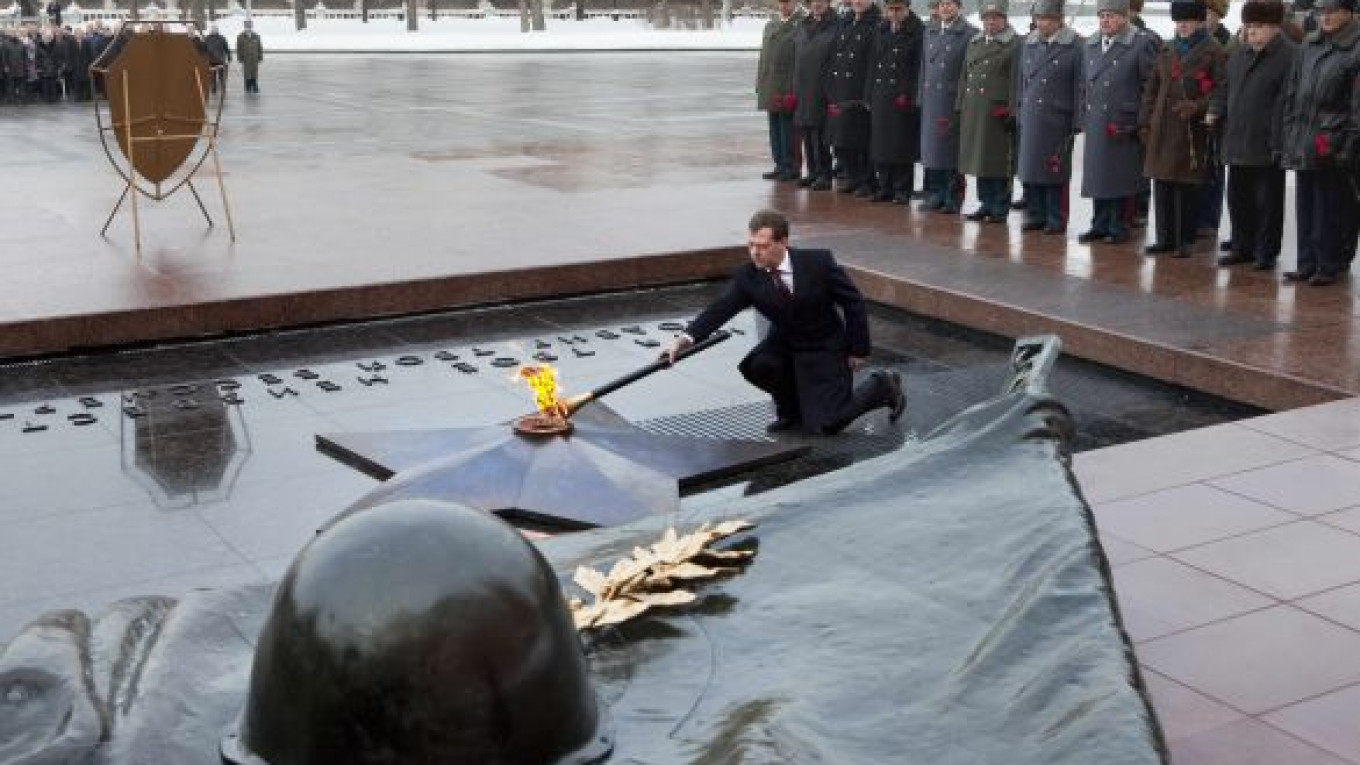A growing number of Russians don't want to serve in the military because of fears of hazing, according to a survey released Tuesday on Defender of the Fatherland Day.
A total 75 percent of respondents said they would not like to serve because of hazing, according to state-run VTsIOM.
The figure is a 30 percent increase from a similar survey conducted in 2000, VTsIOM said.
The latest poll indicates that fears of hazing remain high even though official figures show that the number of hazing cases has declined since the armed forces cut compulsory service from two years to one in 2008.
The VTsIOM poll painted a grim picture of Russians' attitude toward the military, even as people celebrated a four-day holiday weekend off work.
Slightly more than half of respondents — 51 percent — said they would not like to serve because they were afraid of being killed in armed conflict. The figure, however, is an improvement from 2002, when about 60 percent of respondents cited the reason amid the second Chechen war.
Half of respondents said they would not like to see their loved ones serve in the armed forces, while a third felt otherwise.
About 1,600 people were polled around the country for the survey, which had a margin of error of 3.4 percentage points.
The military, once the pride of the Soviet Union, has been struggling with problems such as corruption and an aging arsenal in recent years.
President Dmitry Medvedev, speaking on the eve of Defender of the Fatherland Day, said the military should stop “patching up” outdated weapons and re-equip itself with new ones.
The Defense Ministry should focus its resources on “creating new, quality armament and leave behind for good the system of patching up holes in old weapons,” Medvedev said Monday, RIA-Novosti reported.
A Message from The Moscow Times:
Dear readers,
We are facing unprecedented challenges. Russia's Prosecutor General's Office has designated The Moscow Times as an "undesirable" organization, criminalizing our work and putting our staff at risk of prosecution. This follows our earlier unjust labeling as a "foreign agent."
These actions are direct attempts to silence independent journalism in Russia. The authorities claim our work "discredits the decisions of the Russian leadership." We see things differently: we strive to provide accurate, unbiased reporting on Russia.
We, the journalists of The Moscow Times, refuse to be silenced. But to continue our work, we need your help.
Your support, no matter how small, makes a world of difference. If you can, please support us monthly starting from just $2. It's quick to set up, and every contribution makes a significant impact.
By supporting The Moscow Times, you're defending open, independent journalism in the face of repression. Thank you for standing with us.
Remind me later.


